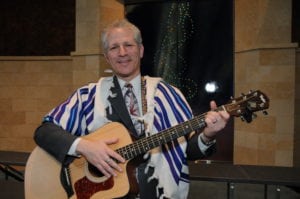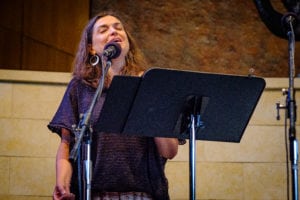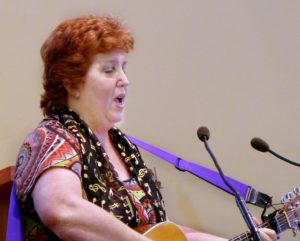By Lee Chottiner
Community Editor
Come Kol Nidre, cantors in Louisville will once again stand before their open arks, beseeching God on behalf of their congregations to declare all vows in the coming year null and void if, after honest effort, they cannot be fulfilled.
Only this year, the congregations won’t be there. At least, not physically.
Because of the coronavirus/COVID-19 pandemic, the worshippers for whom cantors are pleading, will stream this ancient ritual on Zoom and YouTube, as they will all the musical liturgy for the High Holy Days.
It won’t be the same.
“I miss terribly the experience of singing with a congregation and hearing the active joining in singing, harmonizing, participating,” said Cantor David Lipp of Adath Jeshurun. “I get so much energy from hearing and feeling the rhythm and spirit they bring to the prayer.
The Centers for Disease Control (CDC) has identified singing as a form of “superspreading” for the coronavirus. The virus is spread by droplets and aerosols which are projected by the singer.
In a May 12 report, the CDC spotlighted a March choir practice in Sagit County, Washington, where one symptomatic singer infected at least 42 others in the 61-singer group. At least two of those infected have died.
So cantors must do what they can to make remote music during the Days of Awe as spiritually accessible as possible. That means getting creative with technology.
“We’re adapting to the situation, and I feel that’s a very Jewish thing to do,” said Cantor Sharon Hordes of Keneseth Israel. “Being flexible and being able to adapt has kept the Jewish people alive for 4,000 years.”
But the technology they will use isn’t always up to the challenge.
Many congregations have complained about the time delay on Zoom, which puts song leaders and worshippers out of sync, creating what Lipp and Hordes have called a “cacophony” of sound.
So most virtual congregations will be muted during the services, singing (hopefully) by themselves at home.
“I try to let people know that I get a lot of pleasure watching them sing with me, even when muted,” Lipp said, “but the truth is it requires a great aural imagination.”
Which is probably why cantors, at least in Louisville, will experiment with recorded music during holy days.
KI will play a pre-recorded duet that Hordes and vocalist Sherre Fox sing every year during the Musaf service, Hamol al Na’asecha.
“People would definitely miss it (the duet) if we didn’t do it,” Hordes said.
In another pre-recorded performance, KI will bring its members a blast from the past.
Traditionally, Kol Nidre consists of three separate repetitions of the prayer. This year, for one of them, Hordes plans to play a recording of Cantor Meyer Elias, the chazan of KI from 1952 until his death in 1981. She will sing the other two repetitions herself.
“That’s something we wouldn’t doing in a normal year,” Hordes said.
At AJ, Lipp is contracting with a production company to collect individual video recordings that choir members create on their smart phones and put them together as prerecorded audio-visual choral pieces.
“I just don’t want to tell the choir…that we’re not doing anything this year,” he said. “I want them to have a project.”
Lipp also said that a dress rehearsal will probably be recorded as a backup in case technical snags interfere with the service.
Some congregations are sticking with live music. The Temple won’t have a cantor this year, but its choir will sing live in the building, though its members will be scattered throughout the sanctuary and social hall with doors open and the divider down, Director Craig Goldstein said.
Likewise, Lipp, who is the president of the Cantors Assembly, the umbrella group of the Conservative cantorate, said some of his members have considered some form of live service with limited attendance, Plexiglass in front of the singers, even “drive-by shofar services.”
At Temple Shalom, Cantor Wendy Autenrieth, who is in her second year there as visiting chazan, said she is choosing shorter musical selections for this year’s services, mindful that services can’t be as long as they normally are.
“There are lots of different pieces of music for the liturgy,” she said, “so I’m selecting things that are a little shorter, so it’s not so taxing on anyone.”
While few people will be in the building with her, Autenrieth probably won’t use the full range of her voice either – as a precaution.
“Because of the knowledge of this pandemic and what the singing voice spews, very dangerously possibly, I think I’ll hold back a little bit,” she said.





